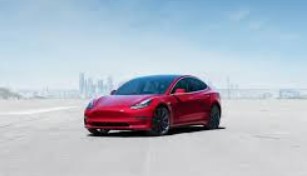NEW DELHI – As Tesla examines building a plant in India, officials have asked the company to find local firms to partner with any Chinese suppliers involved. The details of this request and its implications are discussed in this blog post.
Tesla, the electric vehicle giant led by Elon Musk, has been exploring the possibility of setting up a manufacturing facility in India, one of the world’s largest and fastest-growing car markets. The company has already registered a subsidiary in the country and is in talks with several state governments to secure land and incentives.
However, one of the challenges that Tesla faces is the sourcing of components and materials for its vehicles, especially from China, which is India’s biggest trading partner and also its biggest rival. India and China have been locked in a tense border dispute since last year, which has affected their economic and diplomatic relations. India has also imposed restrictions and tariffs on some Chinese imports, citing security and quality concerns.
According to a report by Reuters, Indian officials have asked Tesla to provide detailed information on the origin of its raw materials and components and to ensure that any Chinese suppliers involved in its supply chain have local partners in India. This is seen as a way to reduce India’s dependence on Chinese imports and to boost its domestic manufacturing sector.
Tesla has not officially commented on this request, but it is likely to pose some difficulties for the company, which relies heavily on China for its battery cells, electric motors, and other parts. Tesla also has a factory in Shanghai, which is its only overseas production site and a key source of revenue. Finding local partners for its Chinese suppliers may require additional time, cost, and effort from Tesla, as well as from the Indian government and local firms.
The request also reflects the broader geopolitical tensions between India and China, which have implications for the global automotive industry. India is keen to attract foreign investment and innovation in its electric vehicle sector, which is still nascent but has huge potential. China is the world’s leader in electric vehicle production and sales and has a strong presence in India’s neighboring countries. Both countries are competing for influence and markets in Asia and beyond.
Tesla’s entry into India could be a game-changer for the country’s electric vehicle market, as well as for its environmental and energy goals. However, it also comes with some challenges and risks, especially in terms of its supply chain and its relations with China. How Tesla navigates these issues will determine its success and impact in India.

